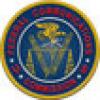Communications facilitated by equipment that orbits around the earth.
Satellite

Chairman Pai Remarks at International Telecom & Media Forum
I’m pleased to note that the Americas region continues to work hard and steadily advance regional proposals for the 2019 International Telecommunication Union World Radio Conference. We are deeply focused on the WRC-19.
The rapidly improving accuracy of satellite navigation in mobile devices can help to democratize land surveying throughout the developing world. How can field practitioners best utilize this tech to implement community mapping initiatives and formalize property rights?
Chairman Pai Remarks on the Current Landscape of Telecom Law at Federalist Society Convention
I thought I’d focus on what the Federal Communications Commission is doing to promote US leadership in some of the most promising sectors of our economy. In particular, I’d like to talk about next-generation wireless technology and the space industry, which you may be surprised to learn has key tie-ins with the FCC.

FCC Approves SpaceX, Kepler, Telesat, LeoSat Satellite Requests
The Federal Communications Commission approved the requests of four companies—Space Exploration Holdings, LLC (SpaceX), Kepler Communications, Inc. (Kepler), Telesat Canada (Telesat), and LeoSat MA, Inc. (LeoSat)— seeking to roll-out new and expanded services using proposed non-geostationary satellite orbit (NGSO) satellites. These proposed satellite systems are expected to enable fixed-satellite service in the United States. The FCC approved:

FCC Considers Further Streamlining of Satellite Licensing Rules
The Federal Communications Commission proposed to further simplify and streamline its rules governing satellite communications. One significant proposal is to create a new unified license for space stations and earth stations operating in a geostationary orbit, fixed-satellite service network. The proposed unified network license would eliminate redundancies in the separate licensing processes for satellites and earth stations.

FCC Proposes Additional Rules to Facilitate Earth Stations in Motion
The Federal Communications Commission took steps to facilitate the continued deployment of earth stations used to provide satellite-based services on ships, airplanes, and vehicles by advancing proposals to create a regulatory framework for non-geostationary orbit satellites (NGSOs) to communicate with these earth stations. The Notice of Proposed Rulemaking seeks comment on a regulatory framework that would expand the FCC's rules for Earth Stations in Motion (ESIMs) to cover communications with NGSO satellites operating in the fixed-satellite service (FSS) and would be similar to the regime

FCC Launches Review of Rules to Mitigate Orbital Space Debris
The Federal Communications Commission initiated a comprehensive review of its orbital debris mitigation rules. Orbital debris, also known as space debris, consists of a variety of objects, including non-functional satellites, that are orbiting the Earth. Debris can pose a risk to operations in Earth orbit, including satellites and manned spacecraft, and in some instances, pieces of debris falling back to Earth can pose a risk to persons and property on the surface of the Earth.

FCC Approves Galileo Global Navigation System
The Federal Communications Commission granted in part the European Commission’s request for a waiver of the FCC’s rules so that non-Federal devices in the United States may access specific signals transmitted from the Global Navigation Satellite System (GNSS) known as Galileo. The Order does not grant access to the Galileo E6 signal, which is transmitted over the 1260- 1300 MHz frequency band, since this band is not allocated for RNSS in the United States or used by the US GPS to provide PNT services. The FCC noted that granting access to the Galileo E6 signal could constrain U.S.
The FCC is holding this Open Meeting on the subjects listed below:

FCC Agenda for November 2018 Meeting
The Federal Communications Commission will hold an Open Meeting on the subjects listed below on Thursday, November 15, 2018:

